-
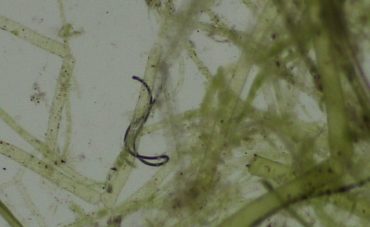 CollaborationGreat Lakes EchoLatest NewsNewsResearch, Data and TechnologyScience, Technology, Research
CollaborationGreat Lakes EchoLatest NewsNewsResearch, Data and TechnologyScience, Technology, ResearchAlgae may vacuum microplastics, but also indicates greater health threat
-A type of algae that a recent study found collects microfibers brings up questions about microplastic pollution impacts and how it could affect human health.
00 -
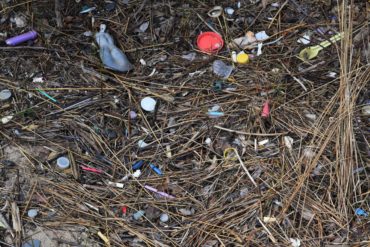 Charles Stewart Mott Foundation PartnershipCollaborationDrinking WaterFeature HomepageLatest NewsMichiganMinnesotaNewsResearch, Data and TechnologyScience, Technology, ResearchWater Quality and Restoration Efforts
Charles Stewart Mott Foundation PartnershipCollaborationDrinking WaterFeature HomepageLatest NewsMichiganMinnesotaNewsResearch, Data and TechnologyScience, Technology, ResearchWater Quality and Restoration EffortsPlastic debris is getting into the Great Lakes, our drinking water, and our food
-Watershed cleanups are popular ways of dealing with local plastic pollution, but once large plastic trash disintegrates into microplastics, they’re nearly impossible to pick up.
-
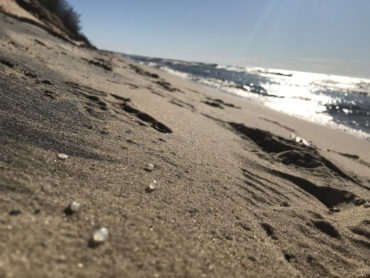 Charles Stewart Mott Foundation PartnershipCollaborationDrinking WaterFeature HomepageFish, Birds and AnimalsLake OntarioLatest NewsNewsOntarioResearch, Data and TechnologyScience, Technology, ResearchSharon OosthoekTorontoWater Quality and Restoration Efforts
Charles Stewart Mott Foundation PartnershipCollaborationDrinking WaterFeature HomepageFish, Birds and AnimalsLake OntarioLatest NewsNewsOntarioResearch, Data and TechnologyScience, Technology, ResearchSharon OosthoekTorontoWater Quality and Restoration EffortsChemical Impact: Microplastic pollution more complex than we think, says new research
-Microplastics act like a chemical sponge, soaking up contaminants such as persistent organic pollutants and heavy metals. Those chemicals, in turn, appear to be causing deformities in larval fish.
-
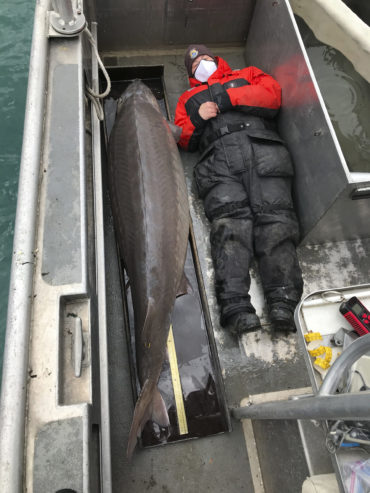 APDetroit RiverFeature HomepageFish, Birds and AnimalsLatest NewsMichiganNewsResearch, Data and TechnologySturgeon
APDetroit RiverFeature HomepageFish, Birds and AnimalsLatest NewsMichiganNewsResearch, Data and TechnologySturgeonHold on! 240-pound fish, age 100, caught in Detroit River
-The 240-pound, nearly 7-foot-long sturgeon, assumed to be a female, was quickly released back into the river after being weighed and measured.
-
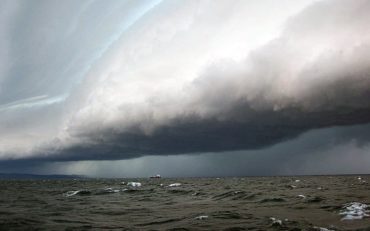 Climate ChangeCollaborationFeature HomepageGreat Lakes EchoLake MichiganLatest NewsNewsResearch, Data and TechnologyScience, Technology, Research
Climate ChangeCollaborationFeature HomepageGreat Lakes EchoLake MichiganLatest NewsNewsResearch, Data and TechnologyScience, Technology, ResearchTsunamis caused by air pressure could resuspend Great Lakes contaminants
-Researchers are trying to figure out if climate change will increase the number of meteotsunamis in the summer.
-
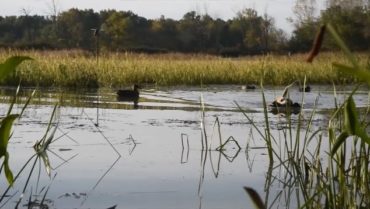 APFeature HomepageFish, Birds and AnimalsHabitat RestorationMichiganNew YorkNewsResearch, Data and TechnologyScience, Technology, ResearchWater Quality and Restoration Efforts
APFeature HomepageFish, Birds and AnimalsHabitat RestorationMichiganNew YorkNewsResearch, Data and TechnologyScience, Technology, ResearchWater Quality and Restoration EffortsEPA awards Great Lakes grants to Central Michigan, Clarkson
-Central Michigan University will receive $10 million to monitor approximately 1,000 wetlands over the next five years.
-
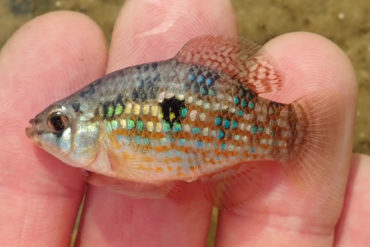 CollaborationFeature HomepageFish, Birds and AnimalsHistory and CultureLatest NewsMinnesotaNewsOntarioRecreation and TourismRecreational Hunting and FishingResearch, Data and TechnologyScience, Technology, Research
CollaborationFeature HomepageFish, Birds and AnimalsHistory and CultureLatest NewsMinnesotaNewsOntarioRecreation and TourismRecreational Hunting and FishingResearch, Data and TechnologyScience, Technology, ResearchHow Microfishing Took the Angling World by (Very Small) Storm
-Around the world, fishers are embracing tiny quarry. Is microfishing a celebration of biodiversity or a sign of collapse?
-
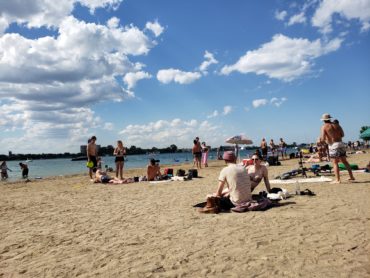 Beaches, Boating, Paddle Sports and SailingFeature HomepageLake HuronLake MichiganLake OntarioLatest NewsNewsRecreation and TourismResearch, Data and TechnologyScience, Technology, Research
Beaches, Boating, Paddle Sports and SailingFeature HomepageLake HuronLake MichiganLake OntarioLatest NewsNewsRecreation and TourismResearch, Data and TechnologyScience, Technology, ResearchDrownings Increase: Research shows possible connection between COVID-19 restrictions and Great Lakes drownings
-More people at the beach appeared to translate to more rescues and more drownings.
-
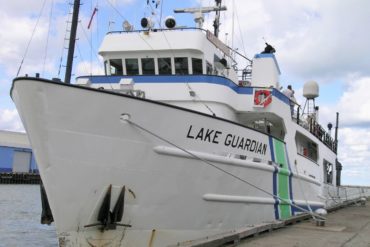 Charles Stewart Mott Foundation PartnershipClimate ChangeFeature HomepageFish, Birds and AnimalsLatest NewsNewsResearch, Data and Technology
Charles Stewart Mott Foundation PartnershipClimate ChangeFeature HomepageFish, Birds and AnimalsLatest NewsNewsResearch, Data and TechnologyScientists Concerned About the Bottom of the Food Web in the Great Lakes
-The warming climate could mean changes for the base of the food web in the lakes, but researchers are not yet sure what those changes might be.
-
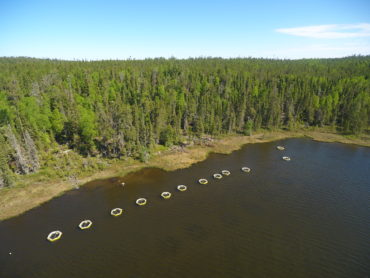 Feature HomepageFish, Birds and AnimalsGroundwater ContaminationLatest NewsNewsOntarioResearch, Data and TechnologyScience, Technology, ResearchSharon Oosthoek
Feature HomepageFish, Birds and AnimalsGroundwater ContaminationLatest NewsNewsOntarioResearch, Data and TechnologyScience, Technology, ResearchSharon OosthoekBolder Fish: New study looks at how pandemic antidepressant use might affect freshwater ecosystems
-While antidepressants offer a better quality of life to millions of humans, they are among the most commonly detected medications in aquatic ecosystems where they could be causing changes to the behavior of fish and insects.

